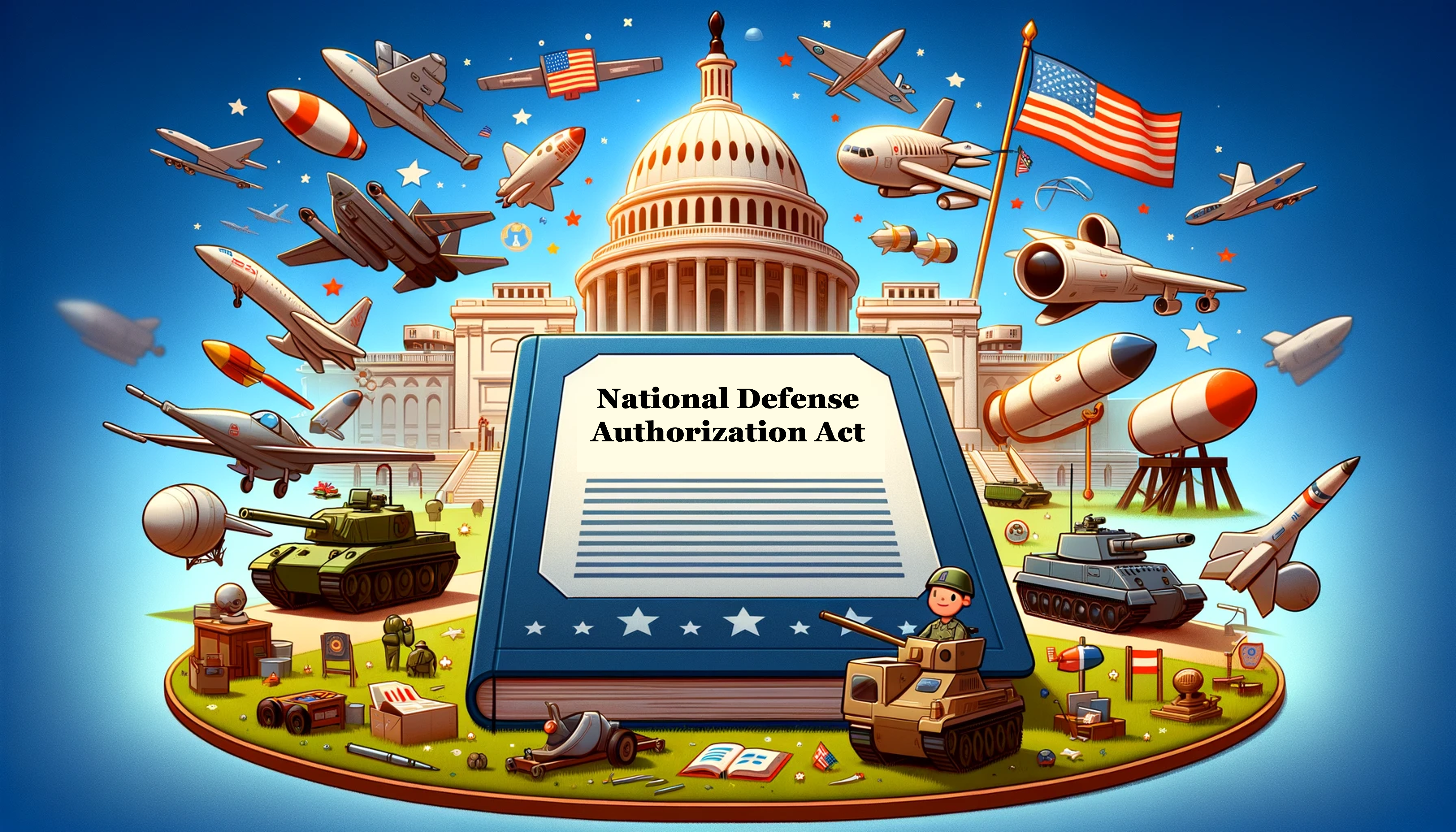
What is NDAA and how does it affect business security?
If you do work in the security industry, or are you are responsible for building out a security plan for your business, you may have heard about the National Defense Authorization Act (NDAA). This blog breaks down NDAA, showing you why it's equally critical for national defense AND your business.
Understanding the National Defense Authorization Act (NDAA)
The National Defense Authorization Act (NDAA) is a key piece of legislation that outlines the budget and expenditures of the U.S. Department of Defense. More than just a financial document, the NDAA sets policies on various aspects of U.S. defense, including physical security measures and the use of technology and products within security systems.
Why Physical Security Governance Matters
The NDAA has specific provisions that impact physical security, ensuring that technologies and products used do not compromise national security. Namely, preventing the U.S. Government from procuring security solutions from a list of Chinese manufacturers. It’s crucial because it governs how sensitive areas are protected, ranging from military bases to other critical infrastructure, emphasizing the importance of using secure and vetted products.
Manufacturers: Staying NDAA Compliant
For manufacturers of physical security products hoping to sell into the US Government, NDAA compliance is non-negotiable. The Act prohibits the use of components from certain Chinese companies deemed a risk to national security. Compliance means ensuring that products do not contain banned components, which is essential for manufacturers looking to supply to the U.S. government or entities concerned about data privacy and security.
Buying NDAA Compliant: A Buyer's Priority
For buyers, opting for NDAA-compliant products is a safeguard against security vulnerabilities. Compliance ensures that security products are free from components that could pose data privacy and security risks. It’s about investing in security that doesn’t just protect assets but also aligns with national security standards. If it's good enough for the US Government, it should be a pretty good benchmark for your business. The long and short of it as a buyer is that exposing your business to components that are manufactured in China represent inherent risks for your business' data privacy and security.

Maintaining Compliance: A Manufacturer's Blueprint
Staying NDAA compliant involves a thorough process and includes but is not limited to:
-
Self-Assessment & Compliance:
- Hardware: Assess and ensure no equipment or services include components from banned companies such as:
- ZTE Corporation
- Huawei Technologies Company
- Hytera Communications Corporation
- Hangzhou Hikvision Digital Technology Company
- Dahua Technology Company
- Software & Cyber: Implement encryption, multi-factor verification, and conduct regular risk assessments.
- Hardware: Assess and ensure no equipment or services include components from banned companies such as:
-
Documentation & Record Keeping:
- Maintain records proving compliance, including details of components, manufacturers, and their origins. Ensure software and cyber records demonstrate encryption and risk management practices.
- Maintain records proving compliance, including details of components, manufacturers, and their origins. Ensure software and cyber records demonstrate encryption and risk management practices.
-
Voluntary Reporting:
- Transparency is key. Indicating NDAA compliance on product specs and maintaining an updated compliance page on the website enhances trust.
- Transparency is key. Indicating NDAA compliance on product specs and maintaining an updated compliance page on the website enhances trust.
-
Regular Updates & Monitoring:
- Compliance isn't a one-time task. Regular monitoring and updates in response to regulatory changes are essential for ongoing compliance.
- Compliance isn't a one-time task. Regular monitoring and updates in response to regulatory changes are essential for ongoing compliance.
-
Legal Consultation:
- While not mandatory, consulting with legal experts can navigate potential non-compliance issues effectively.
What's Required for Manufacturer Compliance?
Compliance with the NDAA involves both proactive and reactive measures. From hardware checks against banned components to rigorous documentation and voluntary transparency, companies must adopt a comprehensive approach. Regular risk assessments, encryption, and multi-factor verification form the backbone of software and cyber self-assessment. Keeping abreast of regulatory changes and consulting with legal advisors ensures that compliance is not just achieved but maintained. Compliance for manufacturers is voluntary.
The Importance of Choosing NDAA Compliant Manufacturers for Your Security Needs
When it comes to enhancing your security infrastructure, the stakes couldn't be higher. Choosing NDAA-compliant manufacturers isn't just a matter of preference; it's a critical decision that impacts the safety, integrity, and security of your operations. Here's why prioritizing NDAA compliance in your purchasing decisions is essential:
-
National Security Alignment: By selecting NDAA-compliant products, you're choosing equipment that aligns with national security guidelines. These products are vetted to ensure they don't contain components from companies that could pose a risk to security, ensuring your security setup supports broader national security efforts.
-
Reduced Risk of Espionage and Sabotage: NDAA compliance means the equipment you're using is free from potentially malicious components that could be exploited by adversaries. This significantly lowers the risk of espionage and sabotage, protecting your sensitive data and infrastructure from unforeseen threats.
-
Trust and Reliability: Manufacturers that achieve and maintain NDAA compliance demonstrate a commitment to quality and security. By purchasing from these suppliers, you're investing in products that are not only reliable but also backed by a rigorous vetting process, giving you peace of mind in their performance and resilience.
-
Future-Proofing Your Investment: NDAA-compliant products are designed to meet current and foreseeable legal and security standards. This foresight ensures that your investment remains viable and compliant, avoiding the need for costly replacements or upgrades in response to changing regulations.
-
Strengthening Industry Standards: Opting for NDAA-compliant manufacturers supports a marketplace that values security, integrity, and innovation. Your choice encourages more manufacturers to adhere to these high standards, fostering a healthier ecosystem of security products that benefit everyone.
In essence, choosing NDAA-compliant manufacturers for your security needs is not just about meeting a legal requirement; it's about making a strategic decision that enhances the overall security posture of your organization. It ensures that your investments contribute positively to both your operational integrity and the collective security framework protecting your industry, business and country.
Conclusion
The NDAA's implications for manufacturers and buyers of security products are significant. Compliance ensures access to significant markets and aligns products with national security interests. For manufacturers, it's about diligence in product development and transparency in communication. Buyers, on the other hand, are assured that their investments in security technology are safe, reliable, and in line with the highest standards for security and data privacy.
Understanding and adhering to the NDAA’s requirements is not just about legal compliance; it’s a commitment to security, integrity, and safety of data and physical assets. Whether you're manufacturing security products or investing in them, the NDAA guides you towards decisions that contribute to a safer and more secure future.
Did you know?
Active Witness is NDAA compliant! If you're interested in learning about Active Witness' cloud-based access control, you can check out our resources page, other blog posts or get a free quote here! 👇
